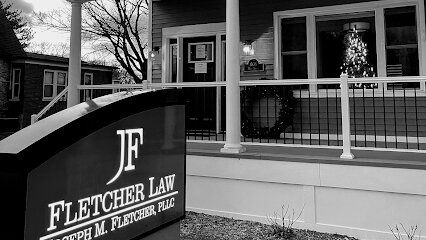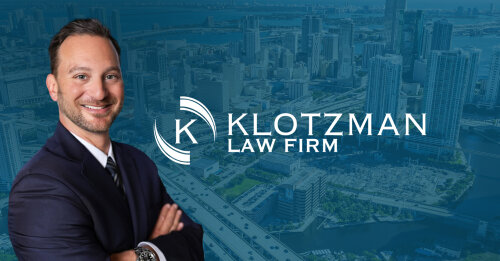Best ADR Mediation & Arbitration Lawyers in New York City
Share your needs with us, get contacted by law firms.
Free. Takes 2 min.
List of the best lawyers in New York City, United States
1. About ADR Mediation & Arbitration Law in New York City, United States
ADR, or alternative dispute resolution, includes mediation and arbitration as ways to resolve conflicts outside traditional court litigation. In New York City, ADR is supported by both state and local court rules as well as private mediation and arbitration services. Mediation focuses on facilitated negotiation, while arbitration results in a binding decision issued by an arbitrator.
In NYC, ADR is often chosen to save time and costs, preserve business relationships, and tailor dispute resolution to commercial or community needs. Courts encourage ADR as a first step or companion process to litigation, particularly for complex commercial, construction, real estate, or employment matters. A skilled solicitor or attorney can help you pick the right ADR path and protect your interests.
Key concepts you should know include the enforceability of ADR agreements and awards, the possibility of court involvement to compel or stay ADR, and the potential for post-ADR court review in limited circumstances. Understanding these nuances helps you decide when to push for mediation, initiate arbitration, or seek judicial support.
For New York City residents, ADR services range from private mediation with experienced mediators to court-annexed programs in state and federal courts. These processes can be conducted face-to-face or online, depending on the forum and the parties’ needs.
2. Why You May Need a Lawyer
Legal counsel can guide you through ADR with clarity, protect contract rights, and avoid enforceability pitfalls. Below are real-world scenarios where NYC residents commonly seek ADR counsel.
- Commercial contract dispute with an arbitration clause: A Manhattan tech startup and a supplier sign a five-year supply contract with an arbitration clause under CPLR Article 75. When the supplier alleges breach and seeks damages, the startup hires a solicitor to preserve confidentiality, select an appropriate arbitrator, and draft a robust arbitration strategy. The attorney also helps decide whether to move straight to arbitration or pursue limited court relief to preserve assets.
- Construction defect claim against a contractor in Queens or Brooklyn: A real estate developer and a contractor sign a construction agreement with an ADR clause. An attorney evaluates the contract’s arbitration provisions, helps secure stay or injunctions if needed, and coordinates with an expert arbitrator who understands NYC building codes and industry standards.
- Employment or wage dispute under an arbitration agreement: An employee claims unlawful dismissal or unpaid overtime and must determine whether arbitration can limit discovery or cap damages. A lawyer can assess unconscionability challenges, ensure the agreement is enforceable, and represent the employee in confidential mediation or arbitration.
- Divorce or family related dispute using mediation: In NYC, a divorcing party seeks a structured mediation to settle asset division, child support, and custody terms. A solicitor can prepare a mediated agreement to be reviewed for enforceability and potential court confirmation if needed.
- Real estate or lease negotiations with ADR provisions: A landlord-tenant dispute in a multi-tenant building uses mediation to resolve rent, service charges, or breach of lease. An attorney helps set up a mediation schedule, prepares the necessary documents, and advises on subsequent arbitration if a settlement fails.
3. Local Laws Overview
New York City ADR practice is governed by a mix of state and federal law, along with court rules that enable ADR programs in NYC courts. Here are two to three key legal frameworks commonly applied in NYC ADR matters.
- Federal Arbitration Act (FAA), 9 U.S.C. § 1 et seq. - This federal statute governs international and domestic arbitration and preempts inconsistent state laws when an arbitration agreement exists. The FAA supports enforcement of arbitral awards in federal and state courts, including in New York City.
- Civil Practice Law and Rules (CPLR) Article 75 - Arbitration - This state law governs arbitration proceedings conducted in New York courts, including the appointment of arbitrators, grounds to vacate or modify awards, and procedures for confirmation.
- Uniform Rules for the Trial Courts and court ADR programs (22 NYCRR, Part 137 and related provisions) - These rules govern court-annexed and court-supported ADR programs in New York State and NYC, including mediation and voluntary arbitration initiatives. They provide the framework for when courts order or encourage ADR and how agreements may be integrated with litigation.
Recent trends and practical notes for NYC ADR: courts have expanded access to ADR, including remote and online formats, to accommodate complex commercial disputes and to reduce backlog. While private ADR remains widely used, court-sponsored ADR programs help align settlement and judicial resources. For official context, see the New York Court System’s guidance on ADR and arbitration programs.
"The New York courts actively encourage the use of alternative dispute resolution to resolve disputes efficiently and with less cost."
Sources for further guidance on these frameworks include official court resources and federal guidance. For example, the federal judiciary provides an overview of arbitration and mediation in the United States.
Key official sources you may consult:
- U.S. Courts - Arbitration
- New York State Unified Court System
- Federal Mediation and Conciliation Service (FMCS)
4. Frequently Asked Questions
What is ADR in New York City and who can use it?
ADR includes mediation and arbitration used to resolve disputes outside traditional court litigation. Both individuals and businesses can access ADR programs in NYC, including court-annexed and private services.
What is the difference between mediation and arbitration?
In mediation, a neutral facilitator helps parties reach a voluntary settlement. In arbitration, an arbitrator imposes a binding decision after hearing evidence.
How do I start ADR in New York City?
First, review any contract clauses requiring ADR. Then consult a NYC ADR attorney to evaluate options, file appropriate court motions if needed, and select a mediator or arbitrator.
Do I need an attorney for mediation or arbitration?
While not always required, having an attorney helps preserve rights, draft ADR agreements, prepare pleadings, and ensure the process remains fair and confidential.
How much does ADR cost in New York City?
Costs vary by forum and provider. Mediation fees are typically hourly or per-session, while arbitration fees include arbitrator charges and administrative costs.
How long does ADR take in NYC on average?
Private mediation often completes in weeks, while arbitration can take several months depending on complexity and arbitrator availability. Court-annexed ADR timelines vary by case load.
Do I need to qualify to be a mediator or arbitrator in NYC?
Most private ADR providers require credentials, experience in the relevant field, and sometimes neutrality. Court ADR programs may have additional eligibility criteria set by the court.
What is the difference between court-annexed and private ADR?
Court-annexed ADR is facilitated or mandated by a court and often follows formal procedures. Private ADR is negotiated directly between the parties and may offer more flexibility.
How do I choose an arbitrator in NYC?
Consider the arbitrator’s expertise, track record, and fee structure. Some contracts specify a panel or method for appointing an arbitrator, while others allow agreement between parties.
Can ADR outcomes be appealed or reviewed in NYC?
Arbitration awards are generally binding and may be limited in scope for court review. Grounds for vacating or modifying an award exist under CPLR Article 75.
What if the other side does not want ADR?
Courts may compel ADR in certain cases or stay litigation to permit ADR. If ADR is contractually required, non-participation could breach the agreement.
Is ADR enforceable in New York City?
Yes. Arbitration awards are enforceable in NY courts under the FAA and CPLR Article 75. Mediation settlements become enforceable contracts when reduced to writing.
What should I prepare before ADR sessions in NYC?
Gather contracts, correspondence, expert reports, and a draft settlement framework. Prepare questions for the mediator or issues for the arbitrator to decide.
5. Additional Resources
Access to official sources and organizations can help you understand ADR options in NYC and locate qualified counsel. The following resources provide authoritative information and guidance.
- U.S. Courts - Federal information about arbitration and mediation, including how the Federal Arbitration Act works in practice. https://www.uscourts.gov
- New York State Unified Court System - Official information on state court ADR programs, CPLR Article 75, and how to pursue arbitration or mediation within New York courts. https://www.nycourts.gov
- Federal Mediation and Conciliation Service (FMCS) - Federal agency offering mediation services and resources for workplace and business disputes. https://www.fmcs.gov
6. Next Steps
- Define the dispute and ADR fit - Clarify whether mediation or arbitration best serves your goals, considering confidentiality, speed, and enforceability. Time estimate: 1-3 days.
- Review contracts and clauses - Locate any ADR clauses, forum choices, and governing law. Time estimate: 1-5 days.
- Identify potential ADR providers - Research NYC mediators and arbitrators with experience in your industry. Time estimate: 1-2 weeks.
- Consult a NYC ADR solicitor - Schedule a consultation to assess strategy, costs, and expected timelines. Time estimate: 1-3 weeks before engagement.
- Request a scope and fee structure - Obtain written proposals with mediator/arbitrator background, hourly rates, and any flat fees. Time estimate: 1 week.
- Prepare ADR materials - Gather contracts, relevant communications, and any expert reports. Time estimate: 1-2 weeks.
- Enter ADR and monitor progress - Begin mediation or arbitration, document settlements, and seek court relief if needed. Time estimate: ongoing through resolution.
Lawzana helps you find the best lawyers and law firms in New York City through a curated and pre-screened list of qualified legal professionals. Our platform offers rankings and detailed profiles of attorneys and law firms, allowing you to compare based on practice areas, including ADR Mediation & Arbitration , experience, and client feedback.
Each profile includes a description of the firm's areas of practice, client reviews, team members and partners, year of establishment, spoken languages, office locations, contact information, social media presence, and any published articles or resources. Most firms on our platform speak English and are experienced in both local and international legal matters.
Get a quote from top-rated law firms in New York City, United States — quickly, securely, and without unnecessary hassle.
Disclaimer:
The information provided on this page is for general informational purposes only and does not constitute legal advice. While we strive to ensure the accuracy and relevance of the content, legal information may change over time, and interpretations of the law can vary. You should always consult with a qualified legal professional for advice specific to your situation.
We disclaim all liability for actions taken or not taken based on the content of this page. If you believe any information is incorrect or outdated, please contact us, and we will review and update it where appropriate.

















